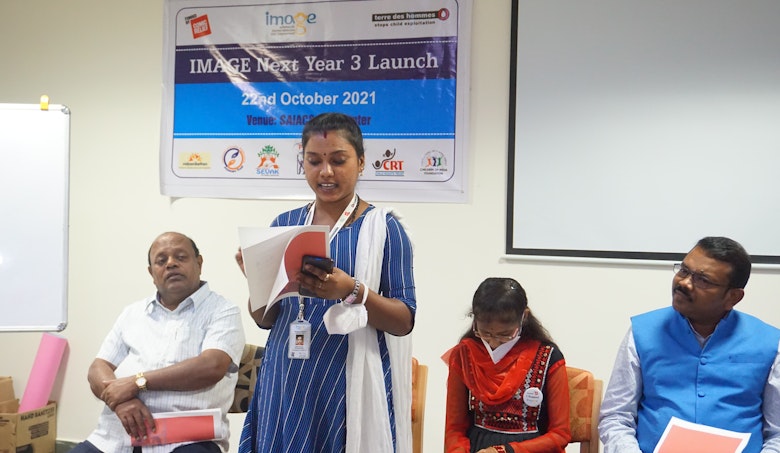A Child-Led Research to Assess COVID-19’s Impacts
Ten million additional child marriages may occur before the end of the decade, threatening years of progress in reducing the practice, according to an analysis released by UNICEF.
It is no shocker that the Covid-19 pandemic has further elevated the number of children being exploited as many took the opportunity of getting their children married during the quiet of the lockdowns. But, little is known about the condition of the victims from pre-existing child marriages throughout the pandemic. For the same reason, Terre des Hommes Netherlands’ project IMAGE in India, which works to empower the victims of child marriage, decided to conduct in-depth research on ‘Understanding the Impact of Covid-19 on Early Married Girls (EMGs) and Vulnerable Girls in Karnataka”.
The major objectives of the study conducted in 5 districts of Karnataka included finding whether COVID-19 led to an increase in child marriages, assess the changes and negative impacts in everyday life caused, as well as the reduced access to essential sexual and reproductive health and rights (SRHR) services.
What made this research unique and credible was that nine child marriage victims, who are part of the IMAGE project themselves participated in facilitating the research by reaching out to fellow EMGs in their districts. IMAGE has been able to train over 15,000 EMGs to become movement leaders in their respective districts. As movement leaders, the EMGs raise awareness against child marriages and conduct various advocacy initiatives.
The nine movement leaders played an important role in this research as they used surveys and focus group discussions with EMGs, vulnerable girls (those at the risk of getting married as a child), and local organisations in the study area. The EMGs went door to door to encourage more and more child marriage victims to take part in the survey by seeking each of the participants’ consent. They collected data through phone calls and registered all the collected information in an online form through the E-Tabs provided to them by the project. More than 380 EMGs and vulnerable girls answered the questionnaire and 29 people from local organisations participated in the focus group discussions held in the 5 chosen districts of Karnataka.
The major insights from the research suggest an increase in the household chores for EMGs, along with financial struggles due to the loss of many jobs. The research also suggested a higher number of unwanted pregnancies as a result of the pandemic along with 5% and 15% of EMG households experiencing an increase in conflicts and alcoholism, respectively. About 40 % of the EMGs could not get timely SRHR services which affected their health severely.
Clearly, COVID-19 situations have brought a lot of challenges to EMGs. The research team further suggested some measures to undo this negative impact by ensuring EMGs access to technology, new interventions focusing to improve the mental wellbeing of girls as well as strengthening the existing measures against gender-based violence.
With children giving the IMAGE project a steady direction in India, there is hope that there lies a future free from abuse and exploitation.

